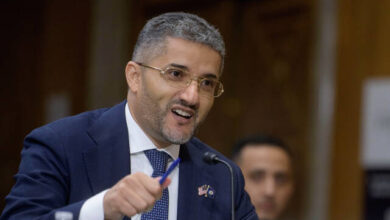
-
While Kuwaiti private sector has the potential to invest in the tourism industry, the country needs increased investment in infrastructure and legal reforms to attract both local and foreign investors.
-
To enable the private sector to operate efficiently and develop innovative tourism products and services, there must be an appropriate and flexible legislative environment.
-
Supporting tourism infrastructure and promoting destinations is key to boosting Kuwait’s competitiveness and enhancing the tourism experience.
-
The tourism sector must be elevated from Ministry of Information control to an industrial sector, crucial for national income and employment, to compete with neighboring countries.
-
In 2023, Kuwaiti hotels had a low occupancy rate of 41.4%—the Gulf’s lowest—with room income stagnant at 24 dinars.
Kuwait’s tourism sector faces challenges related to its integrated vision, legal framework, and infrastructure. The country needs increased investment in infrastructure and legal reforms to attract both local and foreign investors, according to a report in Al Qabas newspaper.
There is no doubt that the Kuwaiti private sector has the potential to invest in the tourism industry; however, it faces several challenges that complicate its efforts.
According to experts, the most prominent obstacles include legislation and regulations, limited periods of use, the lack of a government strategy to develop the sector, and weak tourism infrastructure.
To enable the private sector to operate efficiently and develop innovative tourism products and services, there must be an appropriate and flexible legislative environment.
Experts emphasize the importance of addressing these challenges through a strategic vision, effective planning, and collaboration between the private sector and the government. Providing the necessary support to enhance tourism infrastructure and promote tourist destinations in Kuwait is crucial. Overcoming these challenges will boost Kuwait’s competitiveness as a tourist destination and improve the overall tourism experience.
Given the private sector’s reluctance to invest in tourism, it is essential to enact supportive laws with long-term usufruct rights, establish clear goals, develop a transparent plan and strategy for sector development, and create a specialized government body dedicated to managing and advancing this sector.
It is certain that both the government and the private sector have visions for such projects. The question is whether these visions can align and allow tourism projects to take off in the country.
Firstly, Khaled Al-Mishaan, Vice Chairman of the Board of Directors and CEO of Alargan International Real Estate Company, noted that the public and private sectors currently lack trust in each other. He emphasized the need to strengthen constructive relations through conferences, seminars, and joint educational courses between the two parties.
He pointed out that it is crucial to elevate the tourism sector beyond being managed solely by the Ministry of Information. Instead, it should be recognized as an industrial sector, a major source of national income, and a vital means of employing national workers to compete with neighboring countries in this field.
He continued, to achieve a unified vision, the public sector must support the tourism sector during challenging times. For instance, the tourism sector did not receive the necessary support during the COVID-19 pandemic, despite being one of the sectors most affected by the crisis.
He explained that the current state of the tourism sector, especially hotels, is very poor. In 2023, the occupancy rate in Kuwaiti hotels reached only about 41.4 percent, the lowest in the Gulf. Additionally, the income per room did not see any growth compared to 2022, remaining stable at 24 dinars.
Al-Mishaan noted that tourism in Kuwait currently relies almost entirely on domestic visitors, with little interaction with the international market. Therefore, the government must coordinate efforts across all sectors within a comprehensive national project to strengthen the tourism sector and make it a major source of national income.
He said, “No one should ignore the resources our country has for success, such as entertainment venues, shopping centers, and distinguished restaurants, as well as a favorable climate for eight months of the year.”
Al-Mishaan pointed out that many neighboring countries are fostering the economic growth of this sector through strategic partnerships between private companies and government agencies at rates ranging from 25 percent to 50 percent. These partnerships often involve providing land at reasonable prices and for terms extending beyond fifty years, supporting long-term investments and the development of this vital sector.
Outdated laws and bureaucracy hold back progress
For his part, Mohammed Al-Saqqaf, the former Chairman of the Board of Directors of the Tourism Projects Company, said that while the private sector is eager to invest in major tourism projects, the lack of clear laws and government bureaucracy over the past decades has hindered this. For example, private companies previously submitted proposals for the Failaka Island development project, but obstacles prevented progress.
He pointed out that the appropriate investment period depends on the type and size of the project. Until recently, tourism projects could not lease their sites for more than three years or renew leases without the company’s approval. Additionally, they were unable to undertake any construction work on their sites without obtaining approval from the State Property Authority.
He continued, “How can these clauses encourage the private sector or tourism projects themselves? How can investors spend hundreds of thousands or even millions on company sites without guarantees for renewing lease contracts after three years? During my tenure at the company, we made every effort to highlight these issues and sought to amend them in cooperation with various parties. Some of these clauses have recently been revised.”
Al-Saqqaf pointed out that when laws are clear and encouraging, private sector participation will significantly contribute to the revival of tourism in Kuwait. For example, the Omani Ministry of Heritage and Tourism has implemented the “Integrated Tourism Complexes” law, which allows foreign real estate developers to develop large-scale lands and operate them under long-term usufruct rights, as well as sell residential and commercial units to foreigners.
Regarding the privatization of tourism, Al-Saqqaf said that the Tourism Projects Company does not own its tourist sites; all of them are held under usufruct rights from state property for specific periods, which are renewed with an annual payment made by “Tourism Projects” to state property.
He added, “The government could auction this annual amount to allow the private sector to compete based on certain conditions, provided that applicants meet specific criteria and are involved in projects that promote tourism and entertainment at these locations. It is essential that the duration of the usufruct be beneficial to the private sector. This would allow the Tourism Projects Company to avoid the current hassles, bureaucracy, and legal constraints imposed by government institutions, giving it greater freedom to operate and innovate.”
Lack of dedicated tourism authority delays key projects
For his part, Professor Abbas Al-Majran, Head of the Department of Economics at Kuwait University, said that a tourism environment capable of attracting a sufficient number of tourists economically requires an integrated tourism infrastructure. Without this, the economic feasibility of any major tourism projects, whether individual or isolated, cannot be achieved.
He continued, “The sufficient number of tourists is defined as the number needed to generate a net return after covering operational and annual consumption costs of tourism assets. Transforming Kuwait into an active tourism hub is primarily a state project. In the absence of a clear government vision for developing this sector and the necessary infrastructure for tourism projects, it is unlikely that the private sector will undertake major tourism ventures.”
He explained that the lack of an independent body responsible for tourism activities in the country has led to delays in many tourism projects and caused the transfer of these projects from one public entity to another. For example, the Entertainment City project was transferred from the Tourism Projects Company to the Amiri Diwan, then to the Public Investment Authority, and the zoo was moved from the Public Authority for Agricultural Affairs to the Public Institution for Social Security.
He added that another factor contributing to the lack of tourism activity in the country is the interference of various political movements, both inside and outside the National Assembly. These groups aim to prevent the holding of entertainment events and impose strict conditions and restrictions on the expansion of tourism projects.
Al-Majran added, “Despite recent efforts towards openness, the lack of a clear and announced direction from the government to promote the tourism sector as a major source of income, and the absence of time-bound plans to develop Kuwaiti coasts and islands, still pose challenges. He concluded by stating that announcing such a direction and these plans would undoubtedly help restore confidence and attract private investment to this vital sector.”
Reasons for Kuwait’s delay in developing tourism sector
Al-Saqqaf explained that Kuwait’s delay in developing tourism is due to several reasons:
- The absence of necessary legislation and laws.
- The government’s lack of interest in the country’s tourism projects.
- The transfer of the Tourism Projects Company to a government entity not specialized in the tourism industry after liberation.
- Ineffective oversight and problematic terms between tourism projects and state property.
Diversifying sources of income
Al-Saqqaf said that previous governments did not pay enough attention over the past decades to diversifying sources of income, which negatively affected the tourism sector and contributed to our current backwardness. However, he expressed optimism about the changes under the leadership of His Highness the Amir Sheikh Meshal Al-Ahmad Al-Jaber Al-Sabah and His Highness the Crown Prince Sheikh Sabah Khaled Al-Hamad Al-Sabah. The state has already begun to realize its vision of positive transformation in several areas.
Four ways to develop tourism sector
Al-Saqqaf said that if the government is serious about developing tourism in Kuwait, it should:
- Transfer tourism from under the General Investment Authority to its own entity, either directly under the Ministry of Finance or a new Ministry of Tourism. The Investment Authority has no direct or indirect role in tourism.
- Define the concept and objectives of tourism, emphasizing that the main goal is not only financial return but also achieving significant social and national benefits. This includes highlighting the country’s cultural and civilizational aspects in a world that has become smaller due to globalization and technological advances. The targeted tourism category—whether domestic, regional, or global—should also be clearly defined, so the necessary laws are straightforward.
- Enact incentive laws that include long-term usufruct rights for the private sector.
- Establish national competencies to lead this institution, whether in the executive or supervisory roles, including its Board of Directors.
Four steps to revive tourism
Al-Majran said that developing the tourism sector in Kuwait requires several major steps, the most important of which are:
- Announcing a clear strategy that positions the tourism sector as a key pillar of economic development and a long-term source of national income.
- Issuing legislation and regulations that govern investment in the tourism sector.
- Creating a transparent roadmap with specific features, pathways, and timelines that outlines the tourism projects to be established and the infrastructure they will require.
- Assigning a specialized technical body with broad powers to oversee the management, organization, and development of the sector, and to provide the necessary infrastructure and suitable lands for its projects.




























